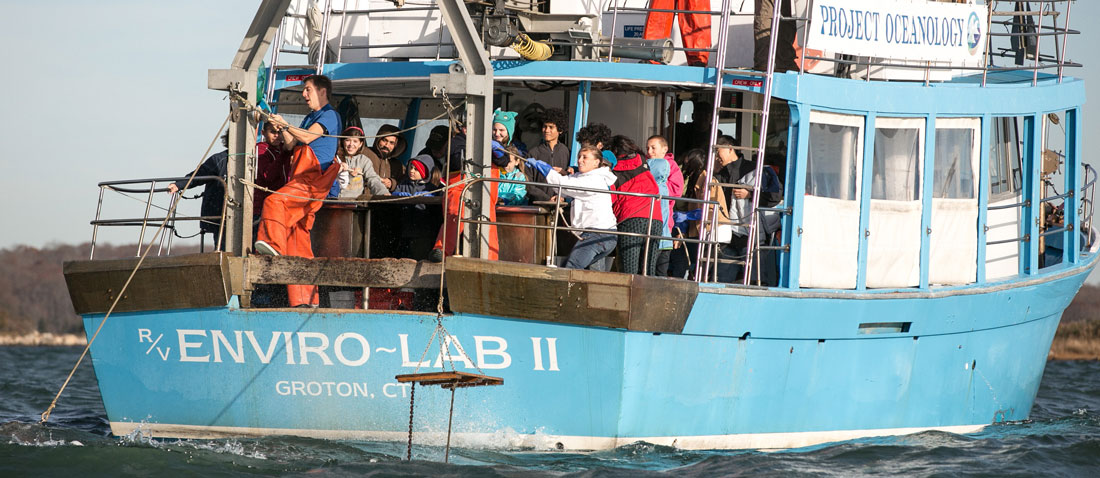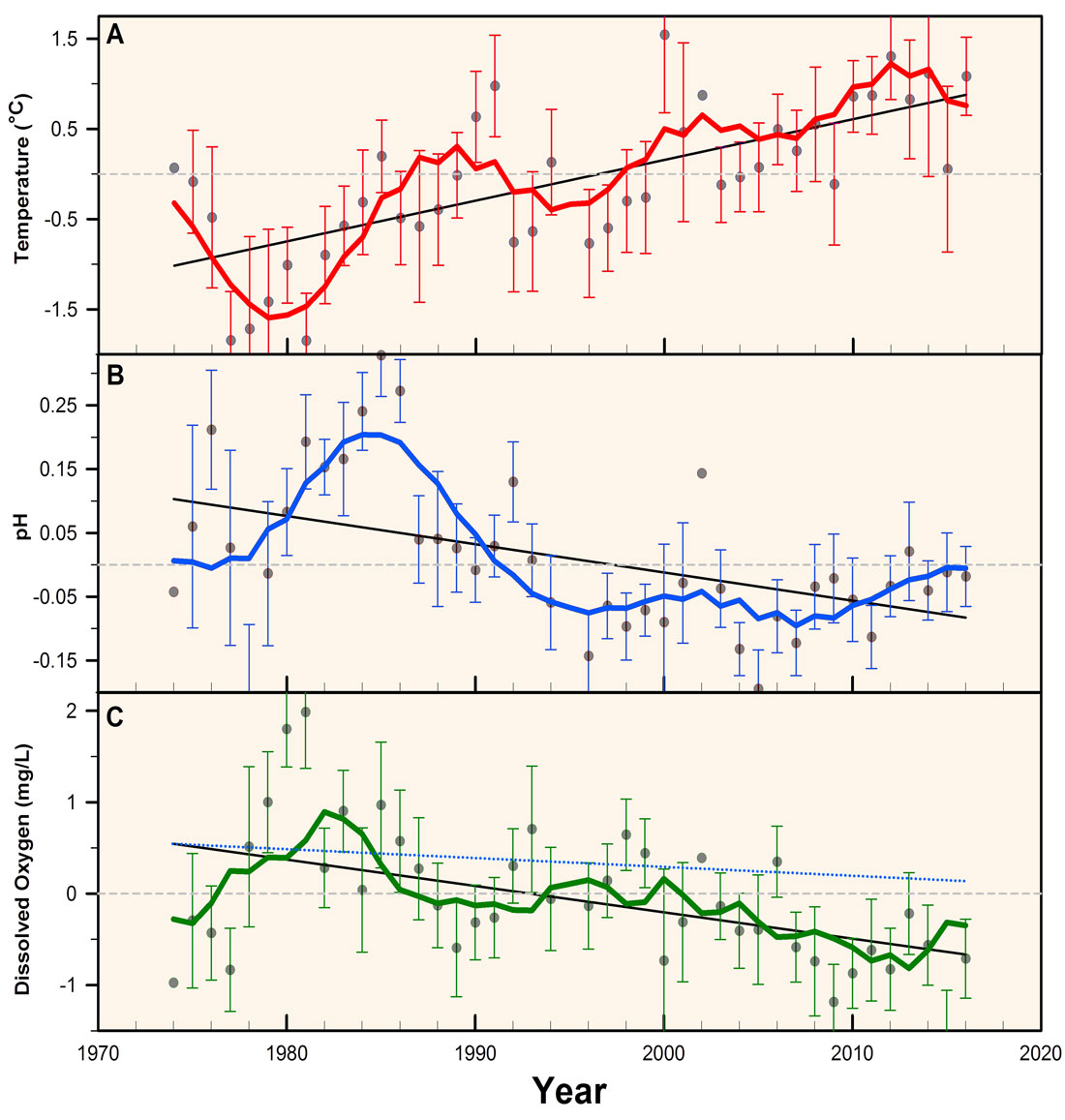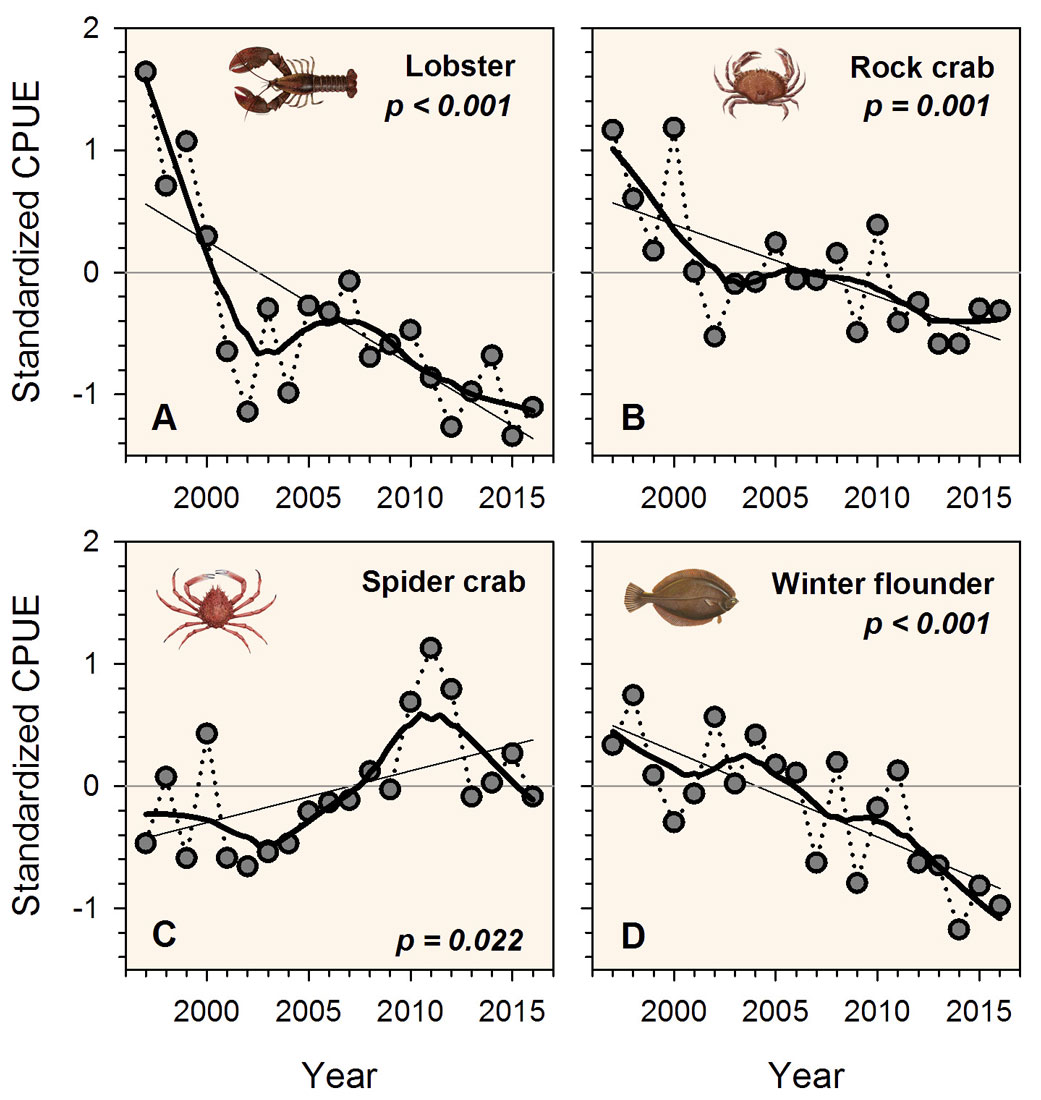Have a listen, how Hannes describes both the findings and the significance of the Project Oceanology time series.
citizen science
[Publication] The Project Oceanology time-series has been published!

21 March 2019. We are happy to announce that Marine Environmental Research just published our most recent paper about long-term ecological change in eastern Long Island Sound based on data collected by Project Oceanology!For his Master’s thesis, Jacob Snyder painstakingly retrieved and digitized more than 40 years of environmental observations from Project Oceanology. This non-profit ocean literacy organization has educated middle and high school students on boat trips to nearby estuarine sites for decades. For the first time, his work allowed a quantitative evaluation of these data and glimpses into the abiotic and biotic changes in nearshore waters of Eastern Long Island Sound.
Highlights
- Citizen-science observations revealed rapid warming, acidification, and dissolved oxygen loss over the past 40 years in eastern Long Island Sound
- Otter trawl catches showed significant decreases in overall species diversity and richness
- Cold-water adapted species (American lobster, winter flounder) decreased, but warm-water adapted species (spider crabs) increased since 1997
Citation
- Snyder, J.T., Whitney, M.M., Dam, H.G., Jacobs, M.W., and Baumann, H. (2019). Citizen science observations reveal rapid, multi-decadal ecosystem changes in eastern Long Island Sound. Marine Environmental Research 146: 80-88
Public outreach
- The publication of this work is also featured in an article for the online magazine TheConversation.com titled
“Citizen science shows that climate change is rapidly reshaping Long Island Sound“
News coverage: UConn Today | New Haven Register | The Hour | NonProfit Quarterly | WSHU Public Radio



